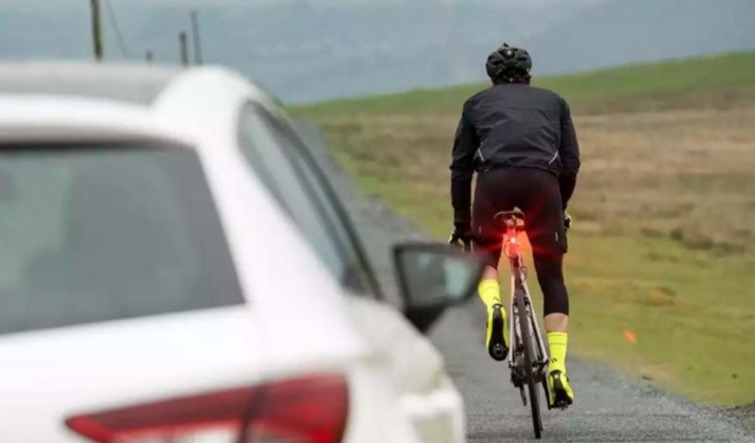The Portuguese Cycling Federation made four proposals for amendments to the Highway Code and the Traffic Signaling Regulation in order to defend the safety and rights of cyclists. The proposals emerged within the scope of the National Strategy for Active Cycling Mobility.
The Portuguese Cycling Federation understands that article 38 of the Road Code should be amended, in order to allow the possibility of a motor vehicle crossing a continuous line when there are safety conditions to overtake a cyclist circulating in front of it in march slower.
Currently, even observing the lateral safety distance and when there are no vehicles circulating in the opposite direction, motorists cannot overtake cyclists in continuous line areas.
The legislation in force on this matter creates potential conditions of pressure and conflict between motor vehicle drivers and cyclists, which should be mitigated, as is already the case in other countries, with significant gains in safety and comfort for all road users, and improving the coexistence conditions between cyclists and other vehicles. It is for this purpose that the Federation has proposed an amendment to article 38 of the Highway Code.
Another measure considered a priority is the revision of the meaning of sign D7a (currently “Obligatory Track for Cyclists”). The Highway Code does not oblige cyclists to circulate on cycle paths, but the lack of proper signage and the application of the sign “Mandatory Track for Cyclists” creates a contradiction between what is stipulated in the Code and the vertical signage used.
In addition, forcing an experienced cyclist in training or a group of cyclists in the same circumstances to pedal on cycle paths can increase risks for themselves and for other users of the special tracks for cycles.
The Federation proposes that the situation be resolved, without the need to create new signage, by matching the D7a sign to the D6 sign (“Route Reserved for Public Transport Vehicles”), ensuring that the application of the D7a sign will mean “Route Reserved for Velocipedes”.
The Portuguese Cycling Federation also proposes that the expression “vulnerable user” applied to pedestrians and cyclists be abandoned in favor of the expression “priority user”.
In this way, the official terminology becomes consistent with the priority that society has to give to active mobility and healthier lifestyles. Keeping the “vulnerable user” terminology reverses the burden of responsibility for road safety, placing it on the victim.
The Portuguese Cycling Federation also advocates expanding the scope and coverage of traffic patrol officers. The implementation of traffic patrol officers, duly trained by the competent authorities, is a situation that already exists in other European countries, and would allow, among other aspects, to reduce the costs of organizing recreational and sports events, guaranteeing articulation with the security forces, but also streamline processes to promote active mobility. There are also substantial gains in terms of community involvement in sports and leisure events.



















Comments